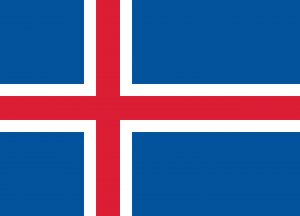Difference between revisions of "Language/Icelandic/Grammar/Conditional-Mood"
m (Quick edit) |
m (Quick edit) |
||
| (One intermediate revision by the same user not shown) | |||
| Line 5: | Line 5: | ||
Hi Icelandic learners! 😊<br>In today's lesson, we will be discussing the conditional mood in Icelandic grammar. This is an important concept to understand if you want to become proficient in the language. We will look at how to form the conditional mood, when to use it, and some examples of its usage. | Hi Icelandic learners! 😊<br>In today's lesson, we will be discussing the conditional mood in Icelandic grammar. This is an important concept to understand if you want to become proficient in the language. We will look at how to form the conditional mood, when to use it, and some examples of its usage. | ||
__TOC__ | __TOC__ | ||
<span link>After mastering this lesson, these related pages might interest you: [[Language/Icelandic/Grammar/Negation|Negation]], [[Language/Icelandic/Grammar/Icelandic-Articles|Icelandic Articles]] & [[Language/Icelandic/Grammar/How-to-Use-Be|How to Use Be]].</span> | |||
== What is the Conditional Mood? == | == What is the Conditional Mood? == | ||
The conditional mood is a grammatical mood used to express a hypothetical situation or condition. It is used to talk about events that are not certain to happen, or to express wishes, requests, and suggestions. | The conditional mood is a grammatical mood used to express a hypothetical situation or condition. It is used to talk about events that are not certain to happen, or to express wishes, requests, and suggestions. | ||
| Line 33: | Line 35: | ||
<hr>If you have any questions, please ask them in the comments section below.<br>Feel free to edit this wiki page if you think it can be improved. 😎 | <hr>If you have any questions, please ask them in the comments section below.<br>Feel free to edit this wiki page if you think it can be improved. 😎 | ||
==Other Lessons== | |||
== | |||
* [[Language/Icelandic/Grammar/Adjectives|Adjectives]] | * [[Language/Icelandic/Grammar/Adjectives|Adjectives]] | ||
* [[Language/Icelandic/Grammar/Icelandic-Articles|Icelandic Articles]] | * [[Language/Icelandic/Grammar/Icelandic-Articles|Icelandic Articles]] | ||
| Line 45: | Line 45: | ||
* [[Language/Icelandic/Grammar/Adverbs|Adverbs]] | * [[Language/Icelandic/Grammar/Adverbs|Adverbs]] | ||
* [[Language/Icelandic/Grammar/How-to-Use-Have|How to Use Have]] | * [[Language/Icelandic/Grammar/How-to-Use-Have|How to Use Have]] | ||
<span class='maj'></span> | |||
==Sources== | |||
* [https://en.wikipedia.org/wiki/Icelandic_grammar Icelandic grammar - Wikipedia] | |||
* [https://www.researchgate.net/publication/286352396_Mood_in_Icelandic (PDF) Mood in Icelandic] | |||
* [https://cooljugator.com/is Icelandic conjugator] | |||
{{Icelandic-Page-Bottom}} | {{Icelandic-Page-Bottom}} | ||
<span links></span> | |||
Latest revision as of 20:59, 27 March 2023
Hi Icelandic learners! 😊
In today's lesson, we will be discussing the conditional mood in Icelandic grammar. This is an important concept to understand if you want to become proficient in the language. We will look at how to form the conditional mood, when to use it, and some examples of its usage.
After mastering this lesson, these related pages might interest you: Negation, Icelandic Articles & How to Use Be.
What is the Conditional Mood?[edit | edit source]
The conditional mood is a grammatical mood used to express a hypothetical situation or condition. It is used to talk about events that are not certain to happen, or to express wishes, requests, and suggestions.
How to Form the Conditional Mood[edit | edit source]
The conditional mood is formed by adding the suffix -i to the verb stem. For example, the verb "að vera" (to be) becomes "verði" in the conditional mood.
When to Use the Conditional Mood[edit | edit source]
The conditional mood is used in a variety of situations. It can be used to express wishes, requests, and suggestions. For example:
- Ég vildi að þú kæmi með mér. (I wish you would come with me.)
- Ég væri þakklátur ef þú gætir hjálpað mér. (I would be grateful if you could help me.)
- Þú gætir prófað þetta. (You could try this.)
It can also be used to express hypothetical situations. For example:
- Ef ég væri þú, myndi ég fara. (If I were you, I would go.)
- Það myndi vera skemmtilegt ef við fengum að fara á ferð. (It would be fun if we got to go on a trip.)
Examples of Usage[edit | edit source]
Here are some examples of the conditional mood in action:
- Ég mundi vera svo þakklátur ef þú gætir hjálpað mér. (I would be so grateful if you could help me.)
- Það myndi vera skemmtilegt ef við fengum að fara á ferð. (It would be fun if we got to go on a trip.)
- Ef ég væri þú, myndi ég fara. (If I were you, I would go.)
- Þú gætir prófað þetta. (You could try this.)
If you have any questions, please ask them in the comments section below.
Feel free to edit this wiki page if you think it can be improved. 😎
Other Lessons[edit | edit source]
- Adjectives
- Icelandic Articles
- Definite Article
- Prepositions
- Possession
- Verbs
- Gender
- Adverbs
- How to Use Have
Sources[edit | edit source]
